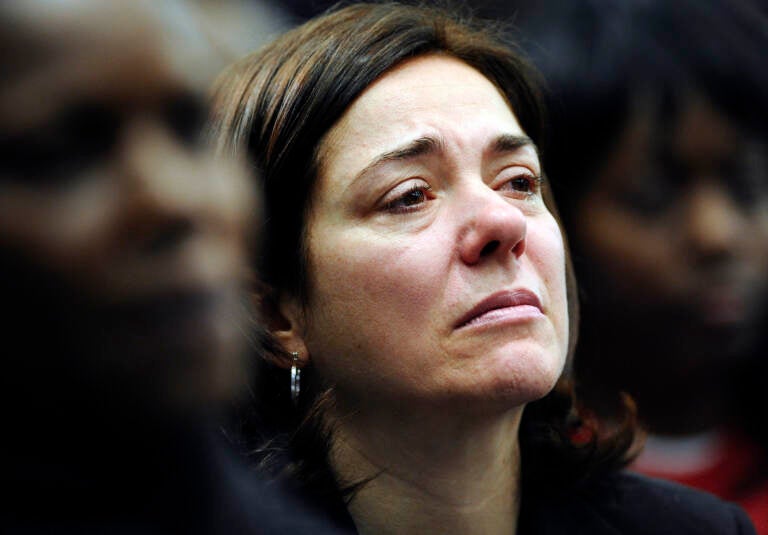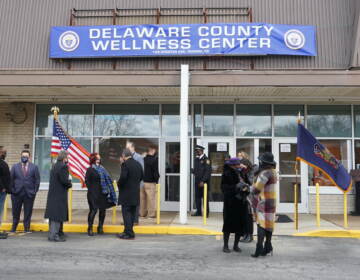Finding a Way to Live With Grief
Listen 49:39
Francine Wheeler, mother of Sandy Hook Elementary School shooting victim Benjamin Wheeler, cries as she listens to Vice President Joe Biden speak during a gun violence conference. (AP Photo/Jessica Hill)
The death of a loved one can be shattering — especially when it’s unexpected. It destroys our feeling of safety, warps our sense of reality, and often leaves us feeling lost … unsure if we’ll ever come out on the other side.
It’s an experience just about everyone goes through at some point in their lives, and yet it can feel profoundly lonely. There’s no linear logic or prescribed progression; grief advances stubbornly at its own pace. The wounds can feel both fresh and ancient, stifling and endless, like it’s a connection to our loved ones — and a wall that we can never break through.
And yet, every day, people do survive their grief — they live with it and through it, and emerge on the other side.
On this episode, we hear stories of grief and healing. A mother whose son was murdered at the Sandy Hook shooting in 2012 describes how her grief has changed over the past decade. We will also explore what researchers have learned about grief in the wake of the pandemic — what some have called a “shadow pandemic” of loss. And we’ll meet a researcher who is trying to compile the best information to help people who are dealing with grief.
Also heard on this week’s episode:
- For many young people, the pandemic brought their first brush with death. We listen back to a story by student reporter Jacob Smollen, who explored how young people deal with grief, starting with his own experience after losing his grandmother at the end of 2020.
- Prolonged grief disorder is now an official diagnosis — but what do we actually know how long grief lasts, and how to treat it? We talk with scientist and writer Hilda Bastian about her research after losing her son to sudden illness.
- When you’re grieving the loss of a loved one, time seems to warp — it speeds up and slows down, or holds us frozen in place. We listen back to conversations with grief therapist Claire Drexler, writer Jared Michael Lowe, and others about whether time really heals all wounds.
Segments from this episode
WHYY is your source for fact-based, in-depth journalism and information. As a nonprofit organization, we rely on financial support from readers like you. Please give today.






